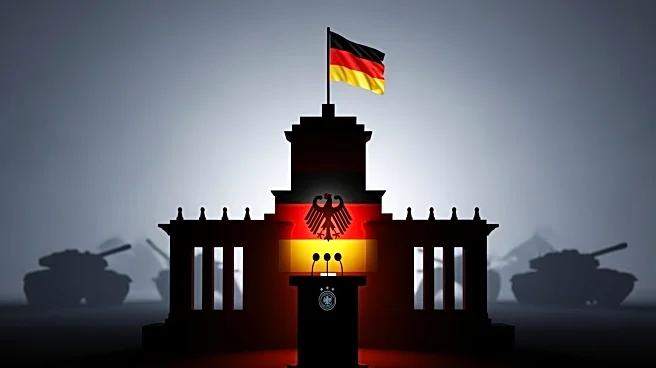What's Happening?
Germany has pledged over $2 billion in military aid to Ukraine, addressing urgent defense requirements as Kyiv estimates its 2026 needs at $120 billion. The aid package includes air defense systems, Patriot
missile interceptors, and precision-guided artillery. Germany's commitment is part of NATO's fast-track funding program, which aims to deliver regular weapons packages to Ukraine. Other European nations, including Estonia, Finland, and Sweden, are also participating in the initiative. Ukraine's Defense Minister Denys Shmyhal emphasized the critical need for air defense systems to counter Russian attacks.
Why It's Important?
Germany's substantial military aid underscores the international community's support for Ukraine amidst ongoing Russian aggression. The aid package addresses critical defense needs, enhancing Ukraine's ability to protect its civilian infrastructure and repel attacks. The fast-track funding program reflects NATO's commitment to providing timely and targeted support, potentially influencing the conflict's trajectory. The involvement of multiple European nations highlights the collective effort to support Ukraine's sovereignty and stability.
What's Next?
Ukraine will continue to seek international support to meet its defense needs, with ongoing discussions about additional aid packages. The fast-track funding program will facilitate regular deliveries of military equipment, ensuring Ukraine's defense capabilities remain robust. Germany and other participating nations will monitor the effectiveness of their contributions and adjust their strategies as needed. The international community will closely watch Russia's response to increased military aid and any potential escalation in the conflict.
Beyond the Headlines
The provision of military aid raises ethical considerations about the impact on regional stability and the potential for escalation. The focus on air defense systems highlights the evolving nature of warfare, with technology playing a critical role in modern conflicts. The situation also reflects broader geopolitical tensions, with NATO's actions potentially influencing global diplomatic relations. The long-term implications for Ukraine's defense industry and its international standing are significant.









